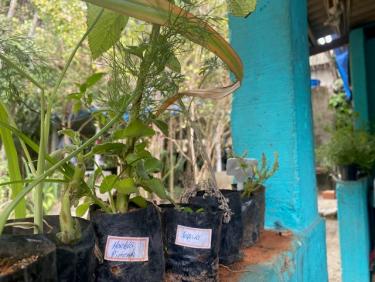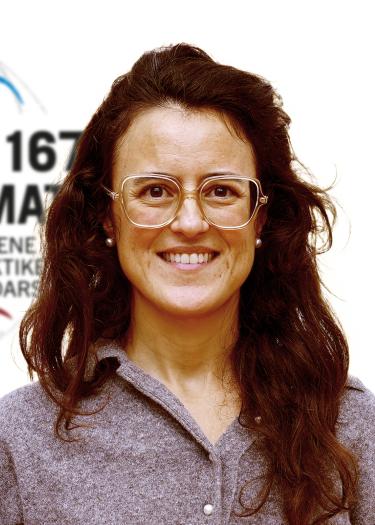Kitchen and Garden: Homemaking Practices of Latin American Activists
This project explores how Latin American activists’ practices in (collective) kitchens and gardens contribute to shaping utopian, future-oriented homes.

Project Description
The subproject "Kitchen and Garden: Homemaking Practices of Latin American Activists" examines land occupation movements and the sociocultural constructions and meanings of arrangements that involve people, places, plants, and food. The focus is on the activists’ practices in domestic and collective spaces, particularly in community kitchens and gardens, and how these contribute to shaping reclaimed territories as utopian, future-oriented homes. A key interest lies in the potential interactions between collective and individual attachments to territorial spaces.
The study primarily considers working-class actors engaged in informal employment and precarious housing conditions, as well as their participation in collective land and housing projects. “Home” is conceptualized as a set of dynamic and future-oriented practices and relationships within an arrangement of people, places, plants, and food. To understand how “home” is shaped through the interconnection of land, food, and politics, case studies are conducted in Brazil and Argentina. These cases examine collective land occupation projects, mainly – but not always – coordinated by social movements, along with their strategies and homemaking practices.
Special attention is given to the role of kitchens, gardens, and agroforestry plots – spaces central to food production and meal preparation. Home is thus studied in relation to ecology and the emancipatory potential of activism. The subproject investigates homemaking as a means of social and ecological transformation, contributing utopian and future-oriented perspectives on home and belonging to the Collaborative Research Center 1671.
Cozinha e Jardim: Práticas de Construção de Lar de Ativistas Latino-Americanos
O subprojeto "Cozinha e Jardim: Práticas de Construção de Lar de Ativistas Latino-Americanos" investiga movimentos de ocupação de terras e territórios e as construções socioculturais e significados de arranjos que envolvem pessoas, lugares, plantas e alimentos. O foco está nas práticas das ativistas em espaços domésticos e coletivos, especialmente em cozinhas e hortas comunitárias, e em como essas práticas contribuem para a construção de territórios conquistados como lares utópicos e orientados para o futuro. Um interesse central está nas interações potenciais entre vínculos coletivos e individuais com espaços territoriais.
O estudo considera principalmente atores da classe trabalhadora envolvidos em trabalhos informais e condições de moradia precárias, bem como sua participação em projetos coletivos de terra e moradia. “Lar” é conceituado como um conjunto de práticas e relações dinâmicas e orientadas para o futuro dentro de um arranjo de pessoas, lugares, plantas e alimentos. Para entender como o lar é moldado pela interconexão entre terra, alimentação e política, são realizados estudos de caso no Brasil e na Argentina. Esses estudos analisam projetos coletivos de ocupação de terras, frequentemente – mas nem sempre – coordenados por movimentos sociais, bem como suas estratégias e práticas de pertencimento.
Uma atenção especial é dada ao papel das cozinhas, hortas e sistemas agroflorestais – espaços centrais para a produção de alimentos e o preparo das refeições. O lar, portanto, é estudado em relação à ecologia e ao potencial emancipatório do ativismo. O subprojeto investiga a construção de lar como uma possibilidade de transformação social e ecológica, trazendo perspectivas utópicas e voltadas para o futuro sobre pertencimento e habitação para o Centro de Pesquisa Colaborativa 1671.

